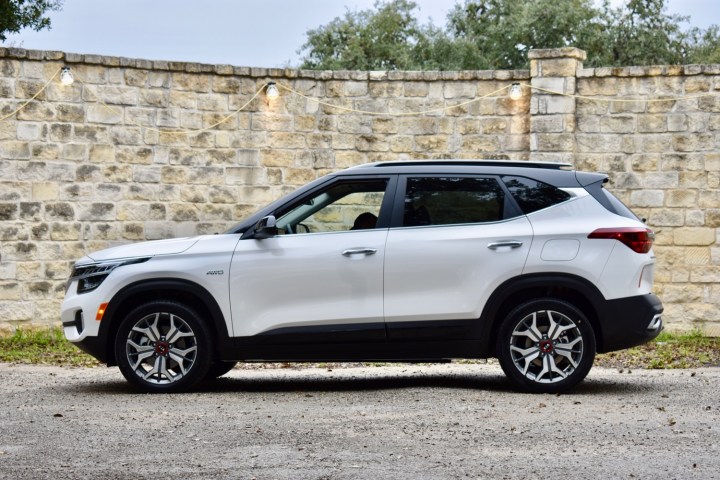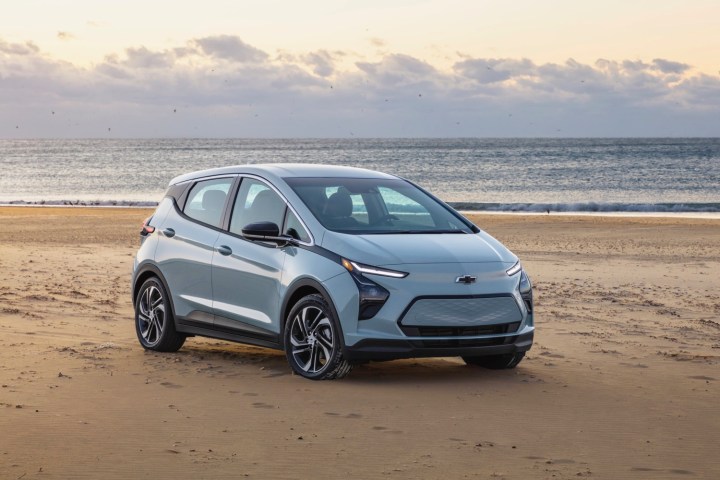EVs are finally growing in popularity. There are now plenty of models available, and they’re quite good — from the Kia EV6 to the Rivian R1S, to the Ford Mustang Mach-E. But there’s one thing that almost every practical EV has in common — they cost at least $35,000. And, there are really only a few models that dip to that price.
That’s kind of a problem. Of course, it’s completely to be expected. In the grand scheme of things, electric vehicles are still relatively new, and carmakers have invested billions into making them happen in the first place.
But that doesn’t really matter to the end consumer. The majority of buyers simply can’t drop $40,000 on a new car — and the result is that they won’t truly go mainstream until there are cars in the sub-$30,000 price range. We need a Kia Seltos of EVs.
The Seltos’ compromises
I get it, the Seltos is a bit of a niche reference. Why doesn’t this piece refer to the “Honda CR-V of EVs,” or the “Ford Escape of EVs?” The answer is that I’ve been driving the Seltos for the last week, and I find it to be an excellent compromise to Kia’s more expensive options, while still retaining what drivers know and love about the modern Kia. A Seltos EV would embody those principles — compromising where necessary, while still delivering an excellent driver experience.

There are plenty of ways in which the Seltos doesn’t compromise. The car still offers the great dual-screen infotainment system, with one screen for the digital instrument cluster that allows you to show keep track of the adaptive driver assist features. The interior is still spacious and relatively comfortable, and the car still supports systems like CarPlay and Android Auto.
So what are the compromises? Well, they’re to be expected. The materials inside the car are slightly less premium, and it’s not as powerful or as smooth as some of Kia’s higher-end cars, like the EV6.
A lower-end EV would be similar. It might not be as premium-feeling, or as premium-looking, as a car like the EV6, but it would retain some of what makes the EV6 a great car. You’d still get some of the tech, and a reasonably spacious interior. What you won’t get is quite as much of that electric zip. It would probably be single-motor, and wouldn’t offer higher-end tech features like a heads-up display and blind spot cameras.
What about the Bolt EV (RIP)?
Of course, some companies have done their best to launch low-cost electric vehicles. The best example of this is the Chevrolet Bolt EV, which, of course, has been discontinued.

Only one problem though. While the Bolt EV isn’t a bad car, it’s relatively small — and far too small for a large portion of U.S. car buyers. The Bolt EUV fixed some of the issues around size — but like the Bolt EV, it has been discontinued, without a replacement on offer just yet.
Kia, and other carmakers, have an opportunity to take a big bite out of the EV market right now, in the absence of the Bolt EV and Bolt EUV. Whether they do so or not remains to be seen — but regardless, EVs won’t truly go mainstream until there are more low-cost options that aren’t tiny or impractical.
Editors' Recommendations
- The Kia EV9 is the template for a modern car interior — here’s why
- Kia EV3: Release date, performance, range, and more
- The Kia EV9 is coming, but you should wait to buy one. Here’s why
- Kia EV6 vs. Niro EV: Why you’re better off paying more
- 2022 Kia EV6 first drive review: An EV defying expectations


